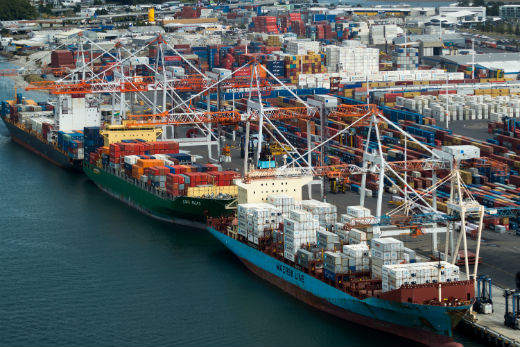Four Bay of Plenty import facilities may be affected by the Ministry of Primary Industries drive to close down transitional import facilities in order to further prevent unwanted pests and diseases entering the country.
MPI is in the process of contacting four transitional facility operators in the Bay that have not received any containers or other cargo over the last year, says MPI North Cargo manager Stu Rawnsley.
MPI is tightening up on small import facilities.
MPI is looking to revoke approval for 'transitional facilities” that have been operating for a year without receiving containers or other cargo.
'The move is about ensuring that private operators who deal with imported goods have the skills and experience to meet New Zealand's strict biosecurity standards,” explains Stu.
'The fact is facilities that process low volumes of goods can find biosecurity requirements to be burdensome, which can lead to compliance issues and disproportionate costs for MPI.”
Low-traffic facilities will escape closure if they can show they will receive goods in the future, but they will require MPI supervision during devanning of containers to ensure they comply with biosecurity requirements.
There will also be a charge for this supervision, adds Stu.
'Approvals will still be made on a case-by-case basis, but facilities that plan to only receive six or fewer containers each year are likely to find it harder to get approval.”
In a related move, MPI will also introduce a flat charge of $887.70 in December for approving new facility operators. This replaces the current hourly rate charged for operator approval.
There are currently some 5800 private quarantine facilities operating in New Zealand. They range from large commercial operations near major ports, to small businesses that rarely receive imported goods.
Any small importer that has its transitional facility approval revoked will still be able to bring goods into New Zealand. Importers have the option of using third-party transitional facilities to ensure cargo arriving into the country undergoes scrutiny for biosecurity risk.



0 comments
Leave a Comment
You must be logged in to make a comment.